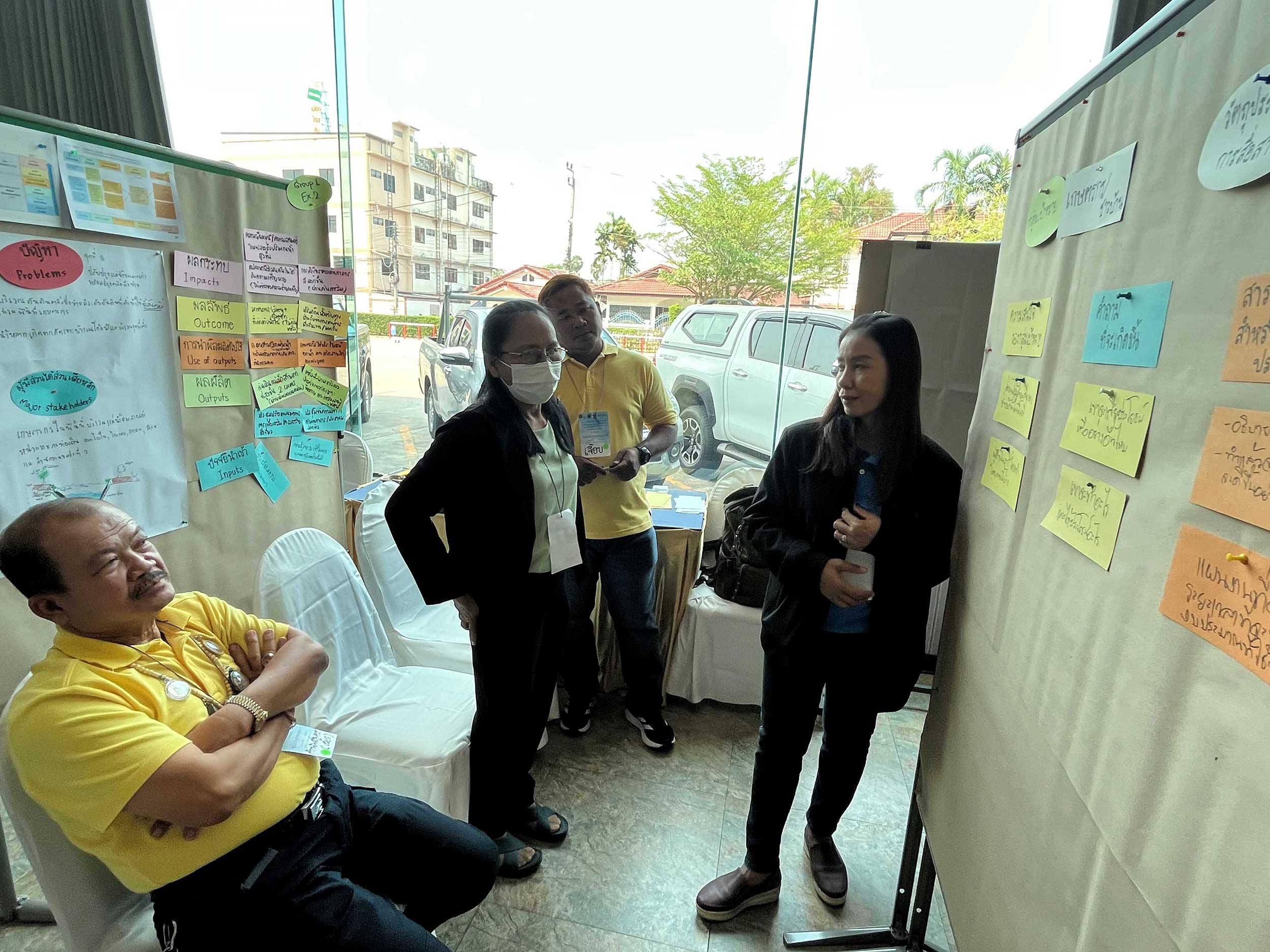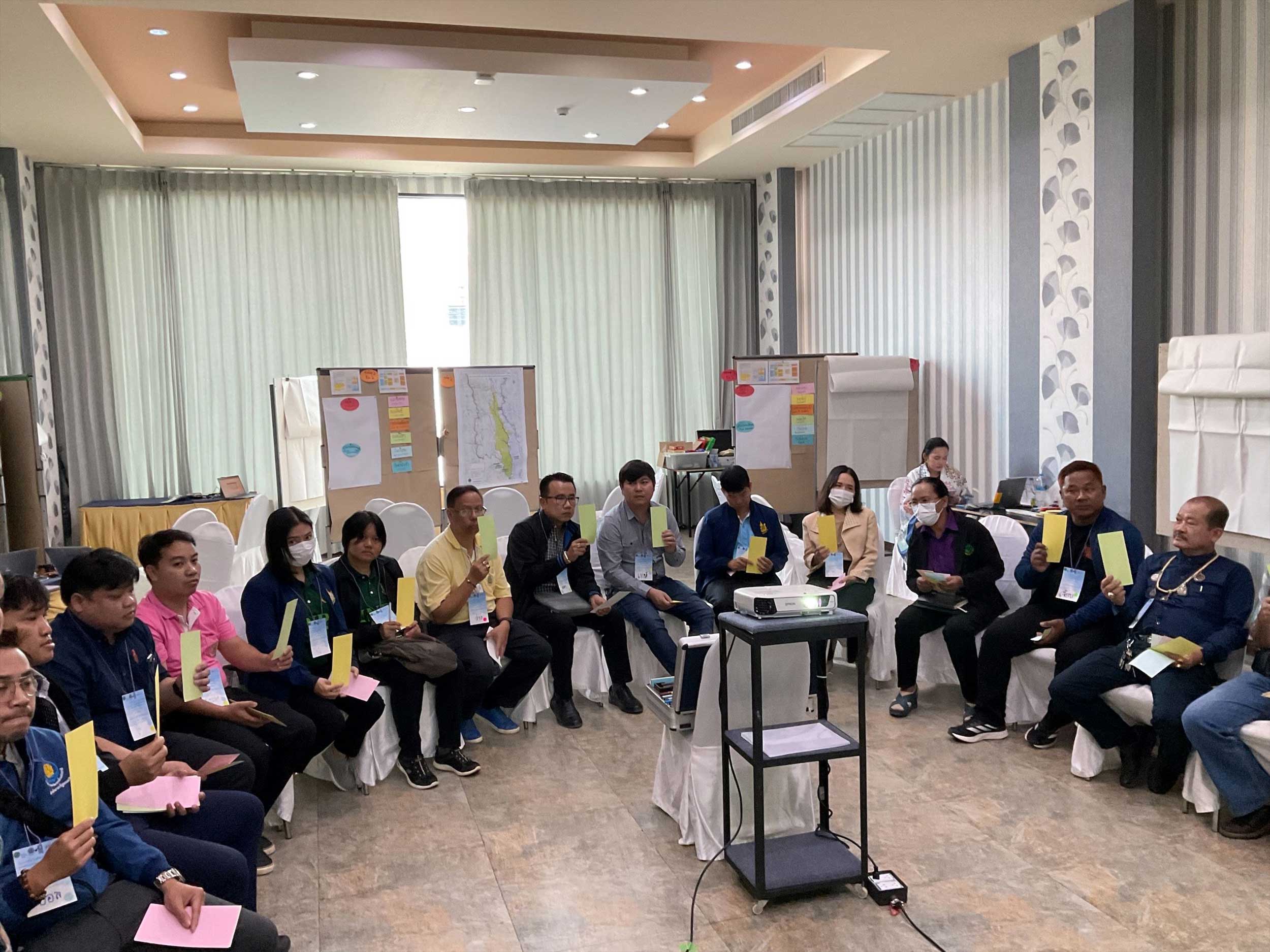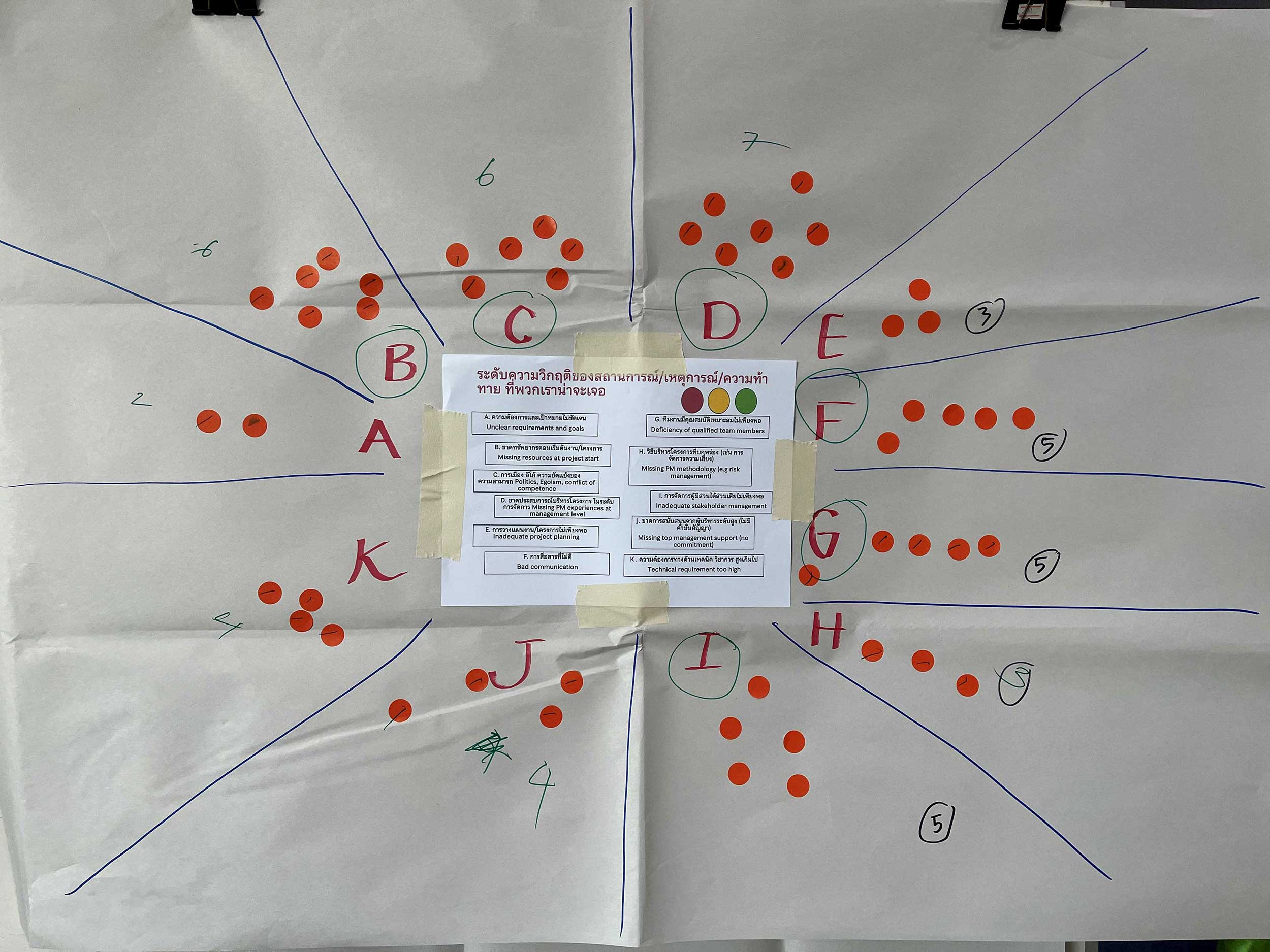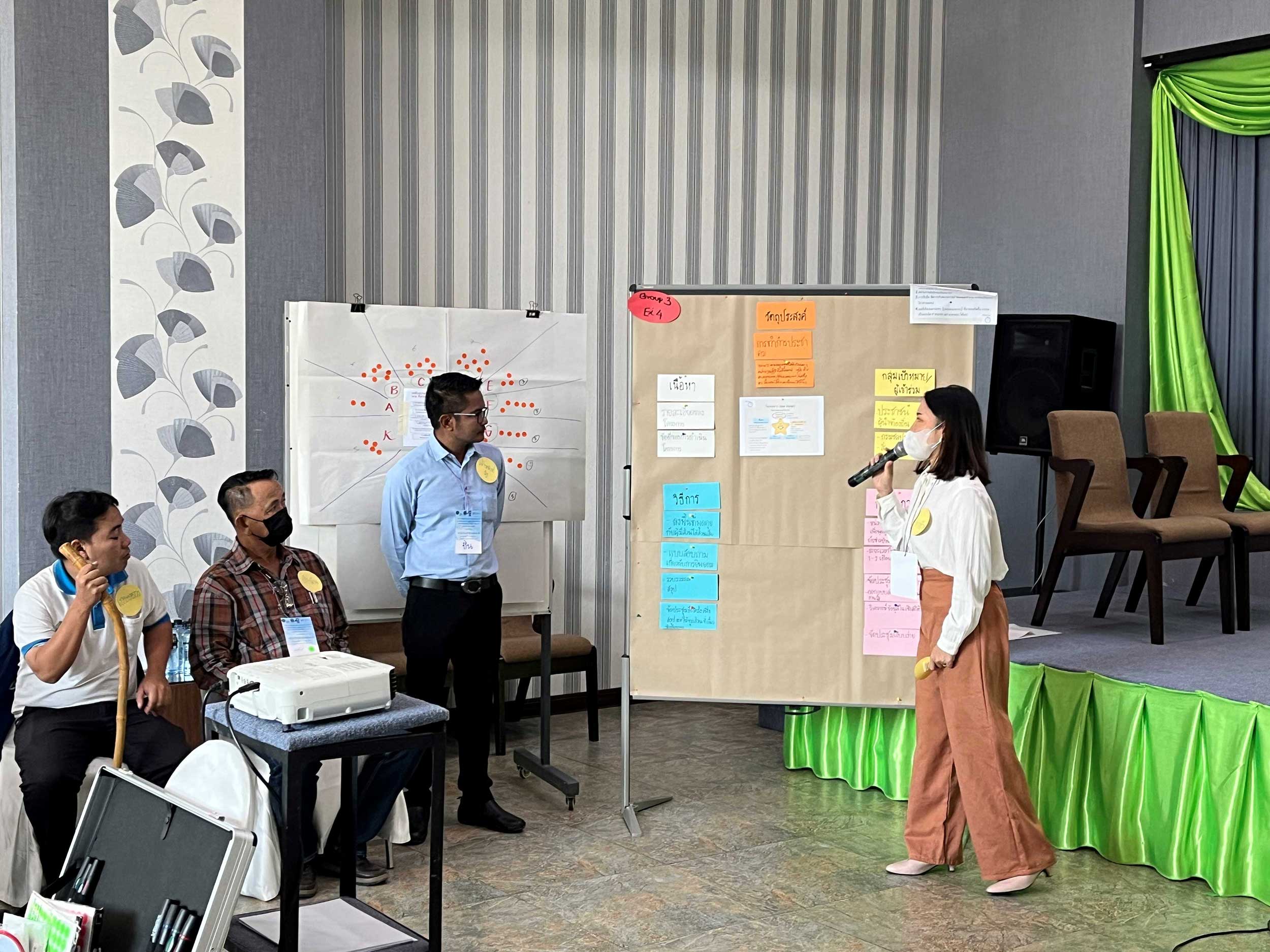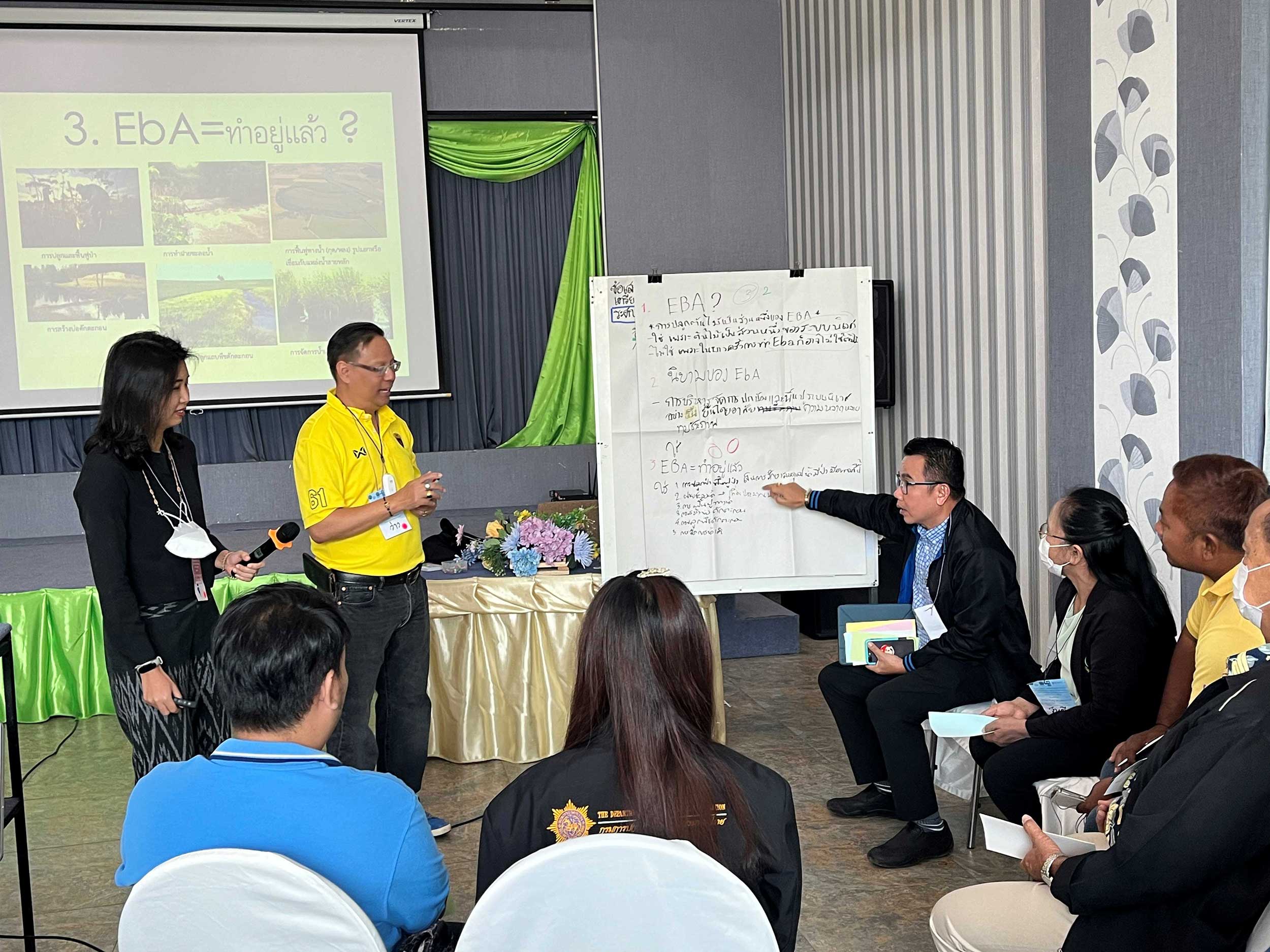Yom-Nan River Basin Stakeholders Join Hands to Tackle Water Challenges through Local Wisdom
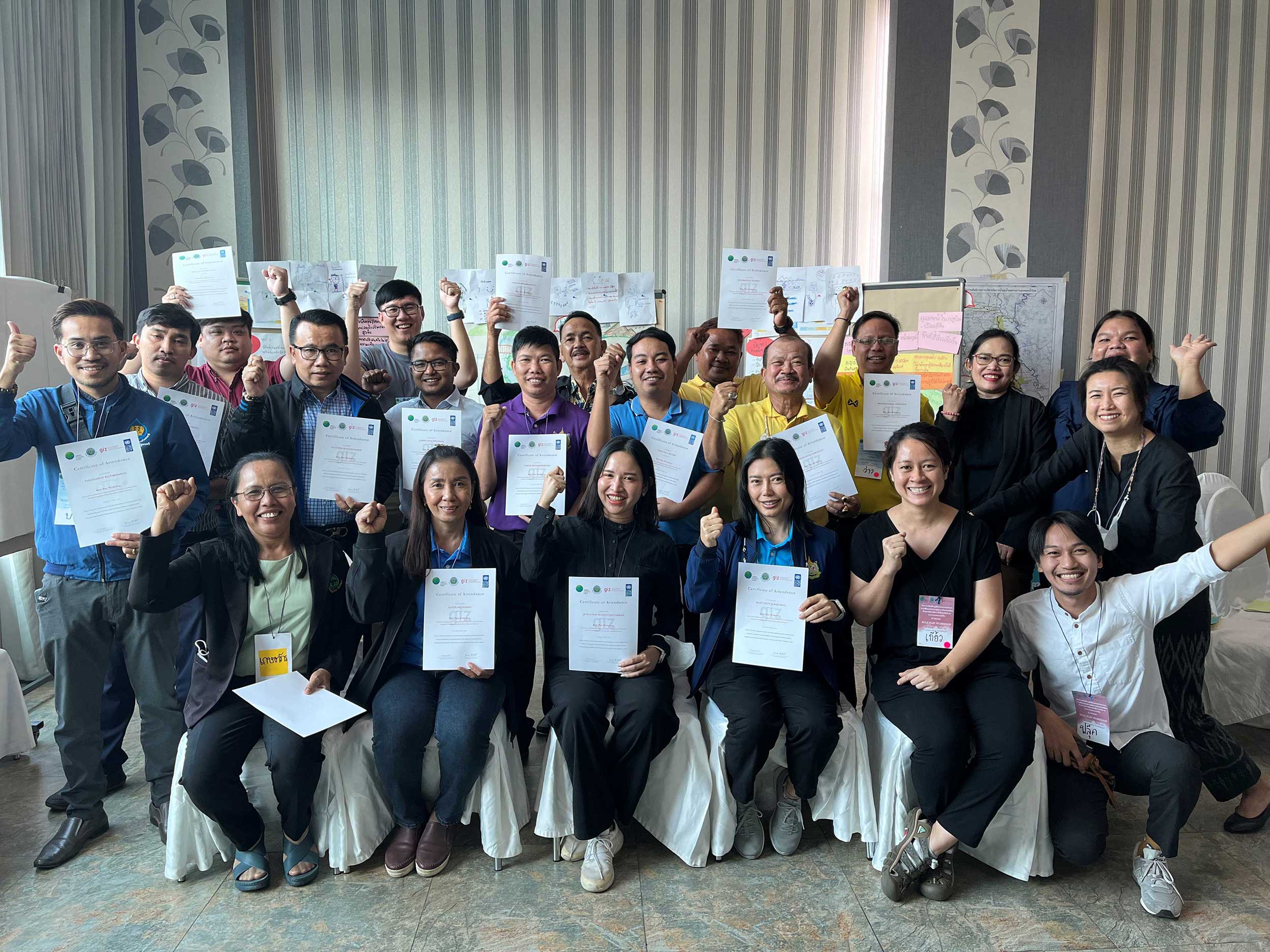
Group photo of participants after receiving certificates on the last day of the workshop.
- GIZ and the Royal Irrigation Department co-organised a 3-day workshop to brainstorm with stakeholders on tackling the water crisis and moving towards sustainable water management in the Yom-Nan River Basin.
- The participants co-created, exchanged ideas, and practised problem-solving through roleplay scenarios to address local-level challenges. The focus was on proposing Ecosystem-based Adaptation (EbA) measures.
- The participants contributed to the design of water management measures under climate change conditions that are appropriate for the area and enhanced their skills in working with government agencies and local communities.
The Yom-Nan River Basin currently faces severe water shortages, droughts and floods. Local communities are therefore subject to more extreme water challenges, mainly due to climate change.
Recognising the need for the public and private sectors to work together with local communities to develop water resilience, GIZ and the Royal Irrigation Department (RID) recently organised a workshop for stakeholders in the Yom-Nan River basin from 28 February to 1 March 2024 in Phitsanulok to address the challenges and brainstorm on methods and practices for sustainable water management.
The three-day workshop was part of a capacity development programme for integrated water resources management under climate change and Ecosystem-based Adaptation (EbA) to promote information sharing and understanding among relevant agencies on water management approaches and the application of EbA measures, and to design appropriate measures in an integrated manner, focusing on the proposal of EbA measures as green measures to complement man-made grey infrastructure. The workshop also aimed to prepare and develop operational skills to drive local issues and measures to meet the needs of local people and ensure their implementation.
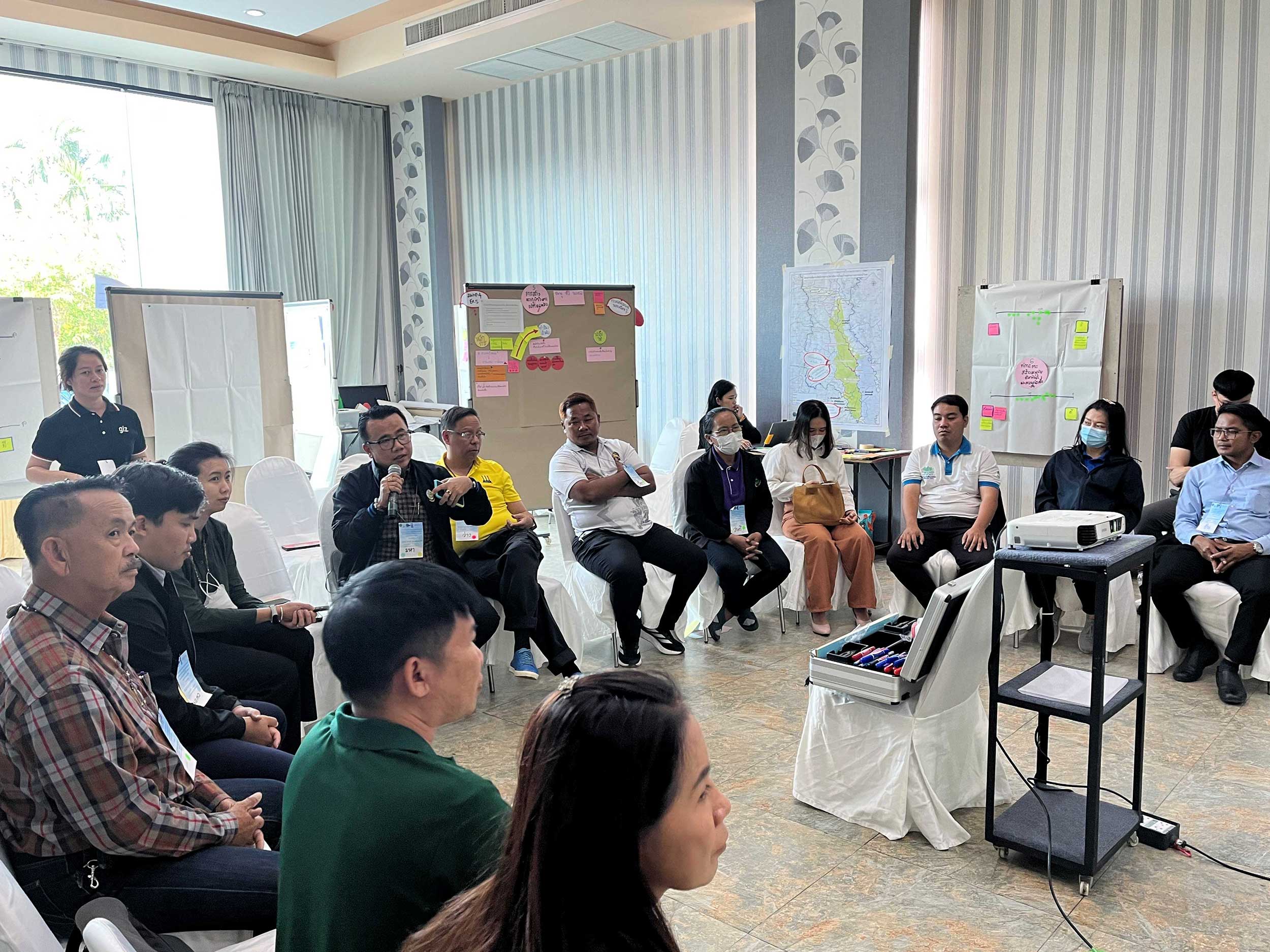
Participants exchanged their thoughts about EbA.
A total of 16 participants from all related agencies, namely the Royal Irrigation Department, the Office of National Water Resources, the Office of Natural Resources and Environment, the Department of Groundwater Resources, as well as from local communities, shared views and ideas, identified problems and challenges including budget allocation, land use, and conflicts between water user groups through roleplay. Different scenarios, for example, a smallholder farmer whose paddy fields are designated to become an EbA development area, and a practitioner-level government official assigned to convince their executive to be aware of the importance of the grey-green infrastructure construction such as gutters, drains, pipes, and retention basins and approve the project, were given to participants. Such roleplays enabled participants to brainstorm on critical thinking and find collaborative, constructive solutions to water resource management.
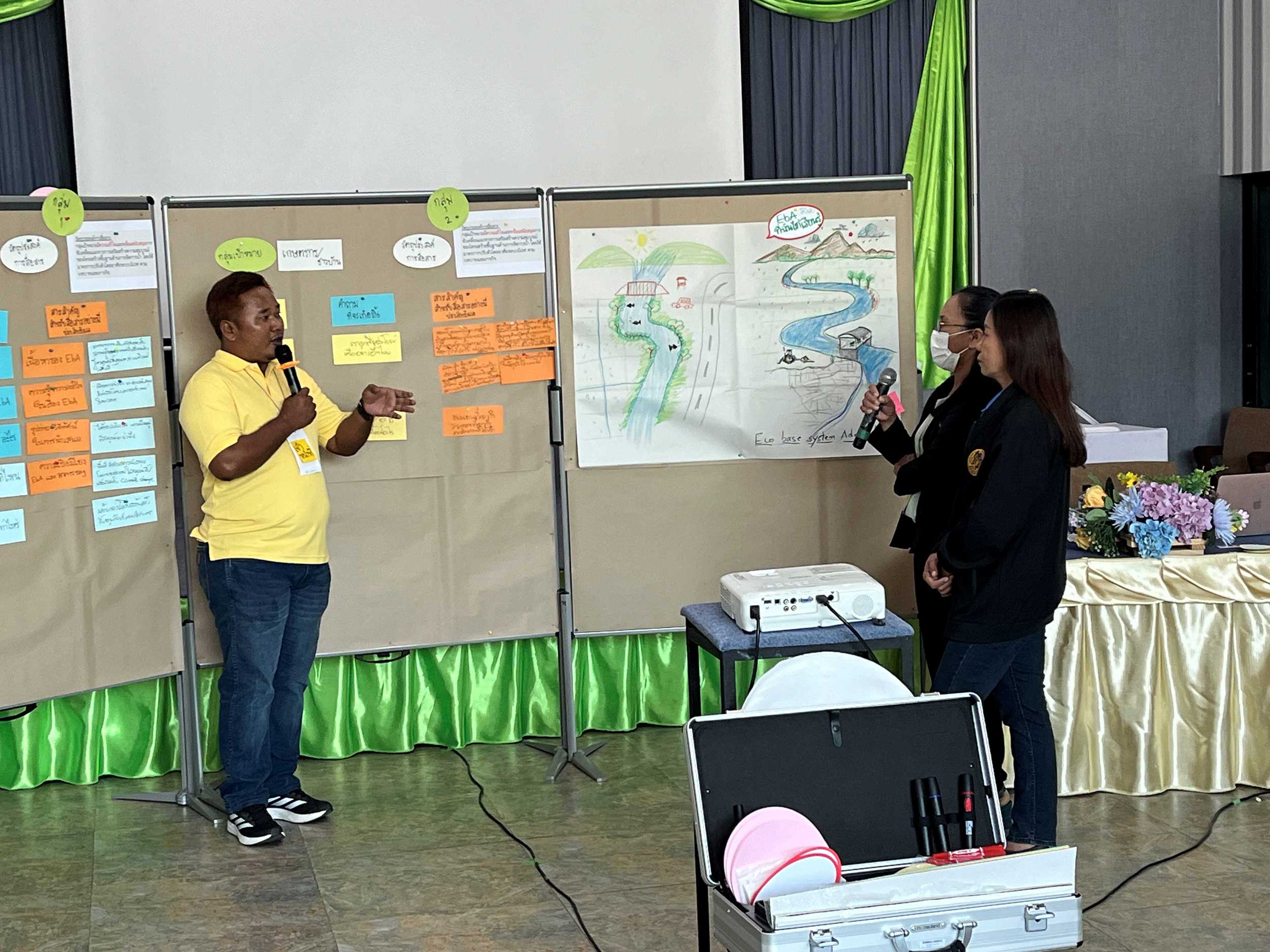
Weeraphong Deemid (left), Head of Wang Nam Bo Village, roleplayed that he was communicating with farmers on integrating EbA with an existing community project.
Weeraphong Deemid, Head of Wang Nam Bo Village in Wang Won Subdistrict, Phrom Phiram District, Phitsanulok Province, said: “This workshop has made me realise the importance of ecosystem restoration, environmental conservation, and protecting water resources in the community to reduce the impact of global warming. It can be used to complement other community projects, such as the sustainable village project.”
Effective water resource management is crucial for building resilience among communities. The United Nations Development Programme (UNDP), RID, and GIZ under the project “Enhancing Climate resilience in Thailand through Effective Water Management and Sustainable Agriculture (E-WMSA)” funded by the Green Climate Fund (GCF) provided a platform for all stakeholders in the Yom-Nan River Basin to assess their professional skills, while building technical knowledge capacities such as climate change risk and vulnerability assessment, and conflict management together with the study of ecosystems in the area in order to develop adaptation measures and water resource management suitable for the area in the long run. The project areas cover 200 sq.km. in three lower northern provinces of Phitsanulok, Sukhothai and Uttradit, benefiting a total of 62,000 individuals across 20,000 households.
Gallery
Dr. Nana Kuenkel
Project Director of E-WMSA
Email:nana.kuenkel(at)giz.de
Related project news
